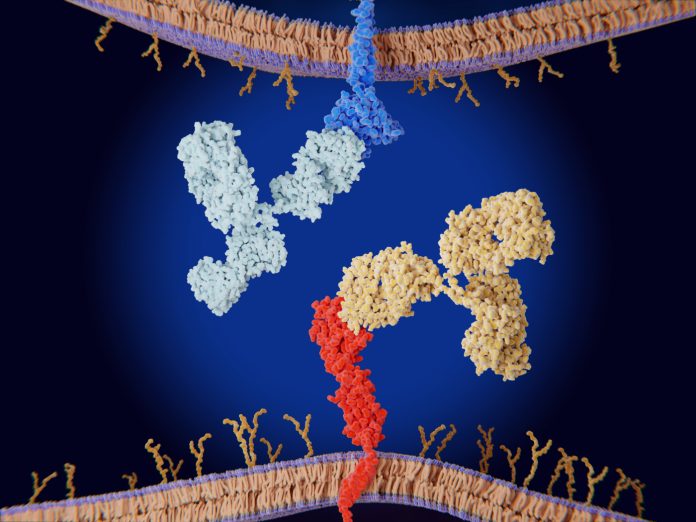
In the best of circumstances, only 25% of bladder cancers have a durable response following anti-PD-1/PD-L1 immunotherapy. But investigators at the Cedars-Sinai Cancer Center have identified genetic signatures related to the gene discoidin domain receptor tyrosine kinase 2 (DDR2) that may eventually help predict whether tumors in patients with bladder cancer and other cancers will respond to immunotherapy. A paper describing their results was published in the Journal of the National Cancer Institute.
In 2019, a team lead by Dan Theodorescu, MD, PhD, director of the Cedars-Sinai Cancer Center, discovered that DDR2 contributes to anti-PD1 resistance in mice across several cancer types. Specifically, they found that by depleting DDR2 with the drug dasatinib, which is FDA-approved to treat certain types of leukemia, they were able to increase the sensitivity of the cancer cells to anti-PD-1 therapy by combining the two, which made them more effective than using either on their own.
In this paper, Theodorescu wanted to see if this gene family would yield useful biomarkers for predicting immunotherapy response in human cancer data sets.
“My approach here was to look at DDR in terms of functional genomics,” said Theodorescu, adding that just looking at kinase levels are insufficient. Instead, gene activation is important when studying the relevance of each on gene expression. DDR triggers many transcriptional responses in the cells. When inhibited, it changes the expression level of a set of genes. “That’s the gene signature which is a surrogate of the activation state of DDR that you normally could not read out by just the levels of the RNA,” he added. “So, we looked at the effects of both genes, DDR1 and DDR2, in several settings to produce a downstream expression signature.”
First, the team assessed the expression of DDR2 and DDR1 in bladder cancer to see how they correlated with the host immune response in the Cancer Genome Atlas program, a publicly available database with information on hundreds of cancer samples. Next, they looked at patient data from IMvigor 210, a clinical trial that evaluated immunotherapy response in bladder cancer, to see if these responses correlated with DDR2 and DDR1 expression or their related gene signatures.
“We observed that cancers with high levels of DDR2 expression were resistant to immunotherapy,” said Theodorescu. In total, the team found four unique gene signatures modulated by DDR1 and DDR2 that were strongly associated with tumor response in bladder and lung cancer to immunotherapy in multiple patient groups. Similar results were seen when the researchers evaluated the signatures in publicly available data on melanoma, glioblastoma, and blood cancers.
“We were able to use the signature of DDR as the surrogate activation of DDR in cancers,” added Theodorescu, “and we are able then to interrogate a variety of tumors just with the DDR expression.”
At the conclusion of this project, the team refined the DDR2 signature using a variety of bioinformatic tools. “In an ideal world, a company could then develop a diagnostic test that could be used for patients to predict the likelihood of immunotherapy response,” said Theodorescu.
The team hopes to validate these DDR signatures in a prospective clinical trial to allow clinicians to determine pre-treatment whether given patients will likely respond to anti-PD-1/PD-L1 therapy.













